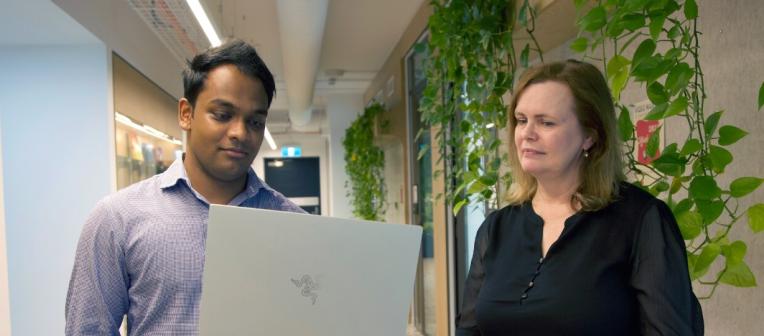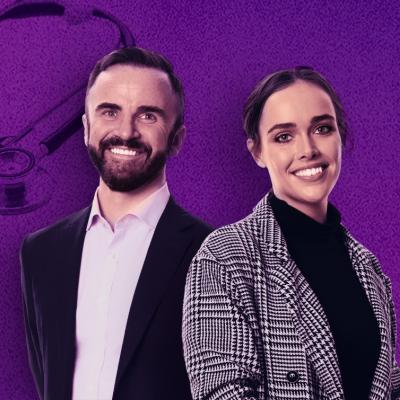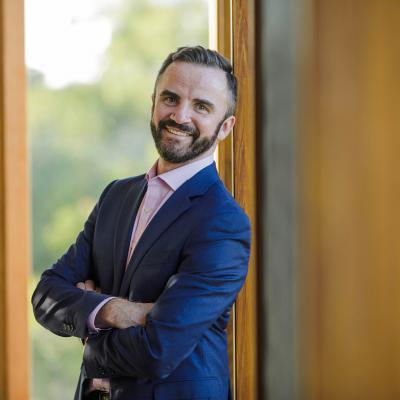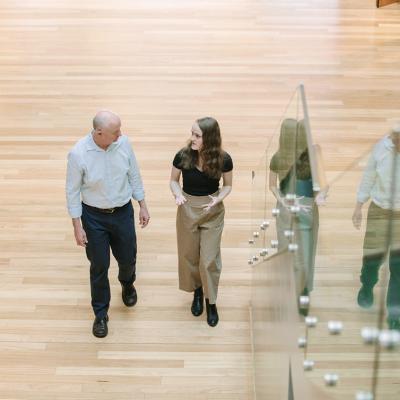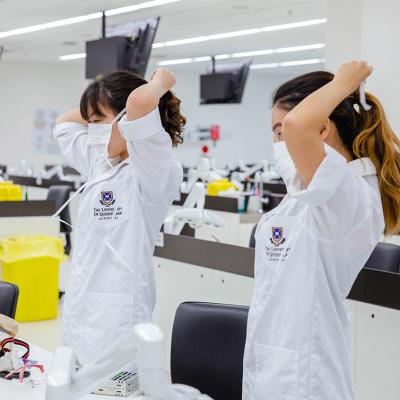Considering studying medicine at university? You may have lots of questions. We're here to help you find answers.
- Why study medicine?
- Should I study medicine?
- Does it matter where you study medicine?
- What can I do with a degree in medicine?
We've interviewed a UQ student and academic to find out. Prabasha is a current medical student, and Associate Professor Margo Lane is head of the MD Learning Hub. They’ve teamed up to answer some of your questions and uncover how UQ can give you the skills you need to face the future, even when you don't know exactly what the future will look like.
Let's find out if medicine sounds like the study area for you.
What are some of the coolest jobs UQ medicine graduates are now doing?
Margo: Our graduates go on to a wide range of careers. All graduates go on to be interns, to start with, in Queensland Health hospitals or throughout Australia. Then they would go on to choose a specialty route, so our graduates will end up being your neurosurgeon, your cardiothoracic surgeon, your cardiologist or your general practitioner. Some of our graduates go on to do even more diverse things such as being entrepreneurs, being involved in space medicine or being rural doctors, so there's a huge range of opportunities if you graduate from UQ with a medical degree.
What's been the most unexpected thing you've been happy to discover at UQ?
Prabasha: Probably the most unexpected thing is how much we can actually impact the lives of the patients that we're seeing and how much we can do as students as well. Everyone goes into medicine wanting to help people and sometimes you think you can't really do that until you're a doctor. But even from day one, when you're learning the pathophysiology or the background of all the science and all the medicine that you're about to do, you take that into the clinical environment, either a hospital or a GP practice.
“As you're speaking with the patients, you see the trust they have in you and how your words can really improve their lives for the better.”
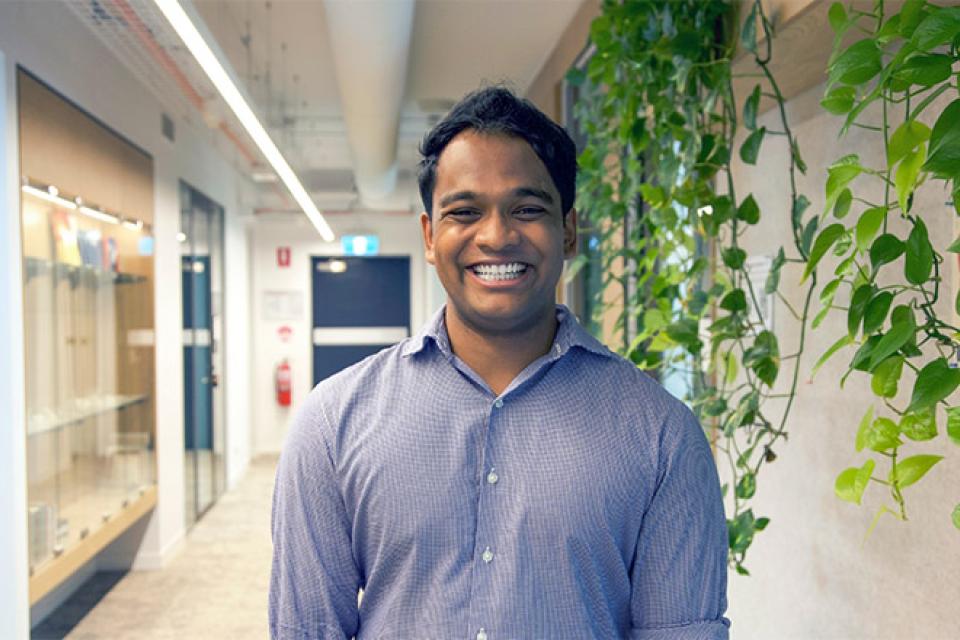
UQ has introduced a new MD curriculum. What are some of the benefits?
Margo: Before I talk about the new curriculum, I might just mention that obviously you've been studying in the current and existing curriculum. There's obviously lots of strengths in that curriculum and we've worked very hard not to lose those strengths going forward. But as you'd appreciate, as medicine moves along and healthcare delivery moves along, we do need to look at whether we're teaching our students the important information for their careers in the future. There's been a change in some of the ways we approach learning experiences. We've got a bit more of a focus on teamwork because teamwork is going to be a core part of your clinical practise.
We have 6 themes of the new curriculum, which link across the 4 years of the program, and ultimately link to being a graduate with a well-rounded set of competencies to be a junior doctor. We have a focus on reflective practise and understanding your own learning, and also how to seek academic help to improve your learning. Just in terms of the way that students learn, there’s a big focus on the ability to undertake self-directed learning because medicine is a career where you undertake lifelong learning.
What does a day in the life of medical student look like?
Prabasha: It really will vary day to day and year to year. Generally, when you're starting off in first year, it probably involves more group learning and individual learning in tutorials, electorials and symposiums – those sorts of things. We are learning from really experienced and really amazing clinicians.
For me, my preference is being out there on placement in the clinical environment, and those experiences vary from being in a GP practice or being in a hospital. I know myself and a lot of students have flown with the Royal Flying Doctors across the country. We've been participating in surgeries, doing really amazing things.
“It's very varied, but I think at the core of it, you're really supported by a lot of amazing teachers who really want to help you, and even amazing patients who all really want to help you become the best doctor that you can be.”
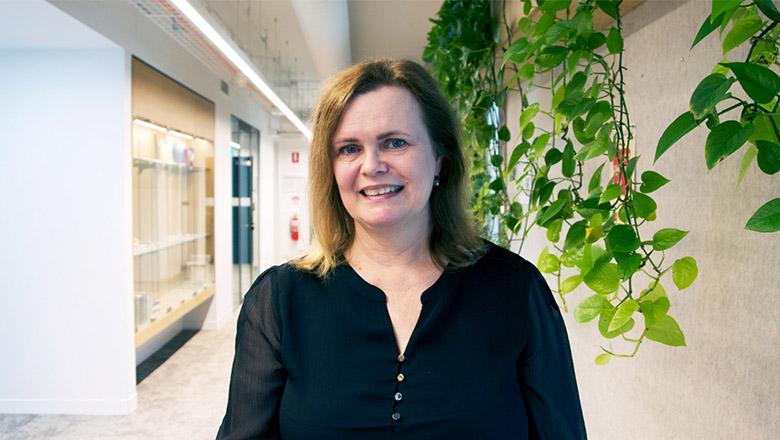
How does the way you learn at UQ prepare you with the skills you need to face an unknown future?
Margo: I think the focus on self-directed learning is a really important way for medical students in this program to prepare themselves for practising in an unknown future. Obviously, doctors can't know everything and medical knowledge is changing so rapidly that this program will supply students with – or encourage students to – develop the skills to seek out the information they require.
The other part of that, I think, is the reflective focus in the new program where students will be thinking about their learning, thinking about their performance, receiving feedback on their performance, and then making a plan to improve going forward.
“Medicine is very much about lifelong learning and reflective practise so I feel this program will set students up well for that.”
What makes a successful medical student and are they the same things that make a successful doctor?
Margo: I actually think they are. When you look at the way we select students to the UQ MD program, we have a wonderful interview for students and we have various selection criteria. But what we're looking for is students who are demonstrating attributes that link into the themes that I mentioned, such as kind and compassionate, professional, safe, an effective clinician, dynamic learner and educator – students who will undertake the program with a view to becoming the types of doctors we are hoping they will be. I think that if students engage with the program and particularly link in with those themes, they've got every opportunity in this program to become a successful doctor.
Explore the Doctor of Medicine and undergraduate health programs or discover what it's really like to study other programs at UQ.

